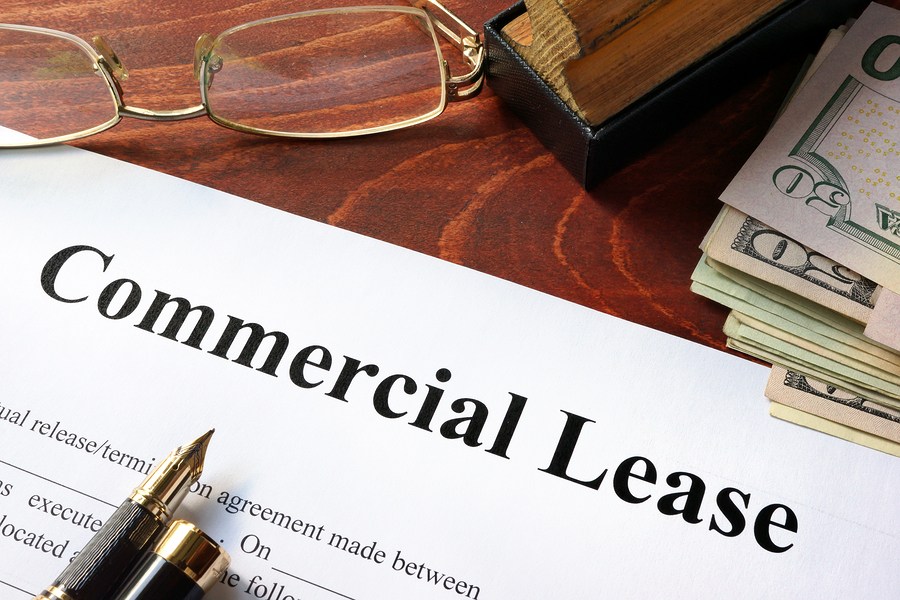
Your Company’s Undocumented Worth
The valuation is a major factor that influences the overall selling price of the property. Business appraisals are based upon a multitude of criteria and indisputable records such as comparables, projections, discount rates, EBITDA multiples, and more.
While the appraiser may have all the information he or she needs, the business elements might be overlooked. That’s why it’s extremely helpful for business appraisers to first grasp the purpose of an appraisal prior to getting started. Unfortunately, the appraiser is often unaware of additional considerations that may enhance or even devalue a business’ overall worth.
Is There Unwritten Value?
Business owners generally agree that prospective buyers are mostly looking for quality in depth of management, market share, and profitability. Though undoubtedly more subjective than documentation, figures, and calculations alone, information regarding key business elements such as market, operations, post-acquisition, value drivers, and fundamentals is highly valued to potential buyers.
Here are some questions to consider regarding a couple of these crucial elements:
Is there an abundance of market competition?
Does pricing reasonably align with the demographic?
Are the company goals consistent with advancing technology?
Are there various and/or global means of reach and distribution?
Does the business have more potential beyond a niche?
What’s the company’s competitive advantage?
What are the strengths and weaknesses of its competitors?
Is there a great deal of alternative technologies?
Are there various vendors?
Is the company’s location convenient to its target audience?
Increased Success & Valuation
Successful businesses thrive due to company-wide values and consistent customer-centric efforts. In his book The 100 Absolutely Unbreakable Laws of Business, Brian Tracy summarizes this as “a company-wide focus on marketing, sales and revenue generation. The most important energies of the most talented people in the company must be centered on the customer. The failures to focus single-mindedly on sales are the number one causes of business failures, which are triggered by a drop-off in sales.”
Tracy continues by pointing out that trends may be the most pivotal consideration and bottom-line contributor to any given company’s success and, therefore, valuation. For 2017, projected trends include the increased use of video marketing, crowdfunding as a source of product validation, nutrition and fitness tracking products, the use of e-commerce, and the acquisition and training of remote employees.
Understanding Trends
Start-up companies are likely practicing as many current trends as possible within their limited funding in an attempt to establish market share, while mature companies are hiring millennials to keep their business hip to those same trends in an effort to protect their existing share. Business owners would benefit from studying and ultimately executing these current trends, as well as from acknowledging the successes and mistakes of their competitors.
Tracy suggests that daily conversations that encompass problem-solving, decision-making, and team collaboration are pivotal factors in making a company successful. And those performing all of these necessities? As Tracy reiterates, top companies have the best people.
Copyright: Business Brokerage Press, Inc.
Read More
Service Businesses Perform Highest When It Comes to Sales
Recently, Business Brokerage Press performed a survey of brokers across the country to see what sells at the highest rate, and what they discovered was very interesting. Retail business sold at 17%, food and drink related businesses at 14%, service oriented businesses sold at 25%, auto related businesses sold at 9%, manufacturing businesses sold at 16% and distribution businesses sold at 11%. Businesses labeled as “other” sold at 5% and professional practices at 4%.
What is a Service Business?
Looking at this gathered information, it is clear that “service type businesses” are very hot and doing quite well. The range for what is considered a service type business is, in fact, rather broad. It encompasses everything from a dry cleaner and hair stylist business to a massage therapy chain or dental practice. Just so long as a business is providing a service and doesn’t fall into another category, it falls under the “service oriented” banner.
Food and Drink Businesses
One of the next key nuggets of information from the survey is that food and drink businesses tend to perform quite well too. Food and drink businesses range from bars to sit down restaurants or fast food establishments. The simple fact is that people need to eat, and this truth is certainly reflected in the strong performance of food and drink businesses. The need for certain types of businesses may change with changing times and changing technologies, but food and drink remains a staple.
Eating, for example, isn’t a trend and the tradition of visiting a local bar or restaurant is very established. In fact, some of the oldest continuously operating businesses in the world are bars and restaurants. Those looking for a business that has some degree of built in stability and is likely to be at least partially immune to emerging trends will be well advised to consider food and drink businesses.
The Mindset of Today’s Buyers
When you are considering what types of businesses that buyers may find interesting it is important to pause and reflect on the likely profile of prospective buyers. Today, a large percentage of prospective buyers are well educated and bring a lot of experience to the table. In short, they are savvy and know what they want.
This combination of education and experience also means that they are open minded and potentially flexible regarding the type of businesses that they will consider. Most prospective buyers will, in fact, be open to a wide array of potential options. At the end of the day, the most important factor for most prospective buyers will be whether or not a business is profitable.
The majority of prospective buyers will not be making an emotional buy. Instead, due to their combination of experience and education, they are very likely to focus on profitability above all else. Of course, this fact underscores the importance of having your business ready to sell long before the first prospective buyer sees it.
Copyright: Business Brokerage Press, Inc.
Read More
Gaining a Better Understanding of Leases
Leases can, and do, play a significant role in the buying or selling of businesses. It can be easy to overlook the topic of leases when focusing on the higher profile particulars of a business. However, leases are a common feature of many businesses and simply can’t be ignored.
Leases and Working with Your Attorney
Whenever a small business is sold, it is common that leases play a major role. In general, there are three different types of leasing arrangements. (If you have any questions about your lease, then you should consult with your attorney. Please note that the advice contained in this article shouldn’t be used as legal advice.)
Three Different Lease Options
In the next section, we will examine three of the most common types of leases. The sub-lease, new lease and assignment of lease all function in different ways. It is important to note that each of these three classes of leases can have differing complicating factors, which again underscores the value and importance of working with an attorney.
The Sub-Lease
The sub-lease, just as the name indicates, is a lease inside of a lease. Sellers are often permitted to sub-lease a property, which means that the seller serves as the landlord. It is key to note, however, that the initial landlord still has a binding agreement with the seller. Sub-leasing requires the permission of the initial landlord.
New Lease
If the previous lease on a property expires or is in need of significant change, a new lease is created. When creating a new lease, the buyer works directly with the landlord and terms are negotiated. It is customary to have an attorney draft the new lease.
Assignment of Lease
Assigning a lease is the most common type of lease used when selling a business. The assignment of a lease provides the buyer with use of the premises where the business currently exists; this works by having the seller “assign” all rights of the lease to the buyer. Once the assignment takes place, the business’s seller typically has no further rights. Also, it is common that the landlord will have wording in the contract that states the seller is still responsible for any part that the buyer doesn’t perform as expected.
Disclose All Lease Issues at the Beginning of the Sales Process
No one likes surprises. If there is a problem with your lease, then this is something that should be disclosed in the beginning of the sales process. Not having a stable place to locate your business can be a major problem and one that should usually be addressed before a business is placed for sale. Buyers don’t like instability and unknowns. Not having a firm location is definitely an issue that must be resolved.
Buyers want to see that you have made their transition from buyer to owner/operator as easy as possible. Providing clarity of issues, such as leasing, will help you attract a buyer and keep a buyer. Regardless of whether it is dealing with leasing issues or other key issues involved in buying or selling a business, working with a business broker can help you streamline the process and achieve optimal results.
Copyright: Business Brokerage Press, Inc.
Read More
What is Really in the Mind of Your Buyer?
It is always important to try and put yourself “in the other person’s shoes.” This fact is of paramount importance when dealing with prospective buyers. Thinking like a prospective buyer could, in fact, be the difference between selling your business and not selling your business. Yet, it is important to continue to put yourself in your buyer’s shoes during the entire sales process.
It is easy to think that because everything is going smoothly with the sale of your business that the tough part is behind you. That may be true, but then again there could still be problems ahead. Issues can come up at a moment’s notice when either your prospective buyer or his or her advisor raises a red flag. Additionally, the larger the business, the greater the complexity. This translates to the greater the risk of problems arising.
The “Little Things” that Could End Up Quite Big
Financial statements are of considerable importance. Quite often you’ll see contingencies regarding financial statements and/or business tax returns, so be ready and be organized. Lease issues is another common category for contingencies. Falling under the lease issue umbrella are topics such as whether or not the seller has agreed to stay on, or issues regarding the property or needs associated with the property if it is a rental.
Other common contingencies can include issues arising from equipment and fixtures that are being included with the sale. These are areas that could be easy to overlook, but they can serve to throw a major wrench into the workings of a deal. The so-called “little things” can cause a deal to fall apart.
3 Key Steps for Preventing Disruptions from Contingencies
Step One – Create a Comprehensive List
One easy move you can make to prevent disruptions from contingencies is to make a list of all FF&E or furniture as well as fixtures, equipment or any other items that could be included with the sale. If an item is not included be sure to remove it entirely.
Likewise, if an item is inoperable then repair it ahead of time. Or at the bare minimum, you could make a list of items that are currently inoperable and include those items in your list. Remember, you don’t want a last-minute surprise or misunderstanding to jeopardize your sale.
Step Two – Check Your Leases
Problems with leases can send deals spiraling out of control. It is a prudent investment of your time to look at things like your leases. You’ll want to make certain that there are no issues that could be viewed as problematic. If there are issues, then it is in the best interest of the deal that you disclose this information at the start of any deal. After all, you don’t want to waste anyone’s time, including your own.
Step Three – Predict Questions and Have Answers Ready
The time you invest in predicting potential questions and having the answers to those questions ready is time very well spent. You’ll look prepared and that helps build trust.
Be ready to answer questions that are likely to arise such as are you going to stay on with the business for a given period of time and what will be the cost, if any, of you doing so? What about employees staying on? Are there legal issues that should be considered? Being able to answer these kinds of questions is a prudent step.
Considering the needs of your prospective buyer will help you make a sale. In selling a business, there is no replacement for being organized and prepared.
Copyright: Business Brokerage Press, Inc.
Read More
Does Your Asking Price Truly Matter?
It is no great secret that sellers often aim high. The logic sellers use is simple, “I can always reduce my price.” While that is true, sellers do need to remember that if the asking price is initially too high, buyers won’t even take a serious look. In short, your selling price must be bound by reality and what the market will bear.
Pricing Does Matter
When an asking price is too high buyers will simply move on. But in the meantime, you may have lost a qualified buyer that would have been very interested at a lower price. Pricing isn’t a factor that should be played with, instead it should always be treated in as professional of a manner as possible.
Instant Millionaire? Maybe and Maybe Not
Some sellers want to become instant millionaires and sell their business for top dollar. Sometimes this is warranted and sometimes the numbers don’t support lofty valuations. Every situation and every business is different. It pays to be realistic.
Studies have shown that there is usually about a 15% difference between what sellers want and what the market will bear. For example, when a business is over $1 million, sellers usually sell for 90% of their asking price. Smaller businesses, valued under a million, usually sell for about 85% of their initial asking price. (Now, that stated, it is important to keep in mind that only data on sold businesses factors into this statistic.)
Business Brokers Help Determine an Accurate Valuation
A business broker has considerably expertise when it comes time to calculate a reasonable asking price for a business. They know that it is essential that they come up with a price that is fair. As a result, business brokers take many diverse issues into consideration. A few of the factors that business brokers consider are location, competition and annual sales variations.
Prospective Buyers Can’t Read Your Mind
An experienced business broker can help you determine the right value for your business and determining the right value is key. The last thing you want is to have an evaluation that is far too high as you will immediately eliminate many prospective buyers. While you may know that you are willing to negotiate and perhaps even reduce your asking price substantially, prospective buyers do not know this fact. A realistic and appropriate asking price is of paramount importance and a business broker can help guide you towards the best decision.
Market Forces Have the Ultimate Say
In the end, it is the market, not the seller, that determines the correct selling price. If no one is willing to pay a certain price than a given business is overpriced. That may be a brutal fact, but it is also quite true.
Copyright: Business Brokerage Press, Inc.
Read More